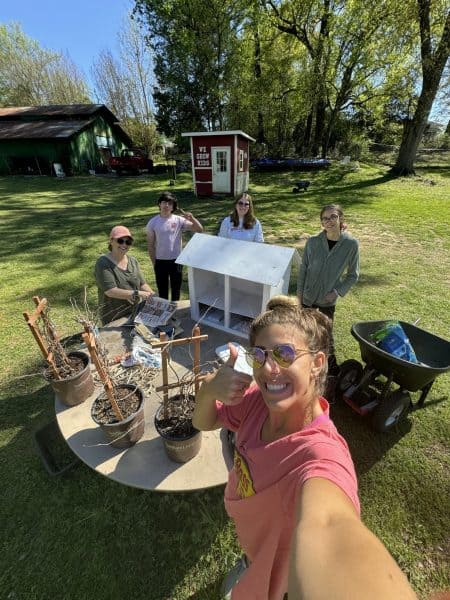Adapting to Campus: How freshmen transition from high school to college
October 2, 2022
With over 38,000 students at The University of Alabama and the largest freshmen class ever, transitioning from a familiar hometown to Tuscaloosa can be a daunting task.
According to a study by the Higher Education Research Institute at UCLA, 37.9% of freshmen students admitted struggling due to the demands of college.
Mengya Xia, a University of Alabama assistant professor of psychology, said after moving away from a familial support system, many freshmen feel isolated during this transition period. Xia said between the ages of 18 and 25, students are in a period of psychological development called emerging adulthood. During this time, their brains continuously mature, but they are between stages of development.
“Once you get into a new environment while your brain still has that flexibility, I think it’s the best time to make use of it and challenge yourself,” Xia said.
Xia said technology makes the freshmen transition period smoother because they can still contact their emotional supporters.
“Keeping up with your established support system is important,” Xia said. “But meanwhile, go out and find new opportunities for interpersonal relationships.”
While in this adjustment period, students can branch out and experience new activities while building a social network.
Xia conducted a study to find how social connection influences individual well-being through relationship quality, relationship quantity and need for relationships.
“It is not the group of people who have low social connections that are the most distressed,” Xia said. “It is the group of people whose social connection need is not met being the most distressed.”
She said students who are happy with little social interaction can thrive at this school as well as students who need more interpersonal communication. Meanwhile, students who are still adjusting to the college experience need to keep an open mind.
Xia said freshmen need to actively build a new support system while acclimating to college life. She said she suggests keeping an open mind during the transition and embracing the uncertainties that freshmen year entails.
“Don’t blame yourself if you are not there yet,” Xia said. “I think that’s the key — acceptance — not only for new things, but also for yourself.”
Sophia Strickland, a freshman, found she underwent an academic and social adjustment period while finding her way on campus.
“I got a 68% on my math test,” Strickland said. “And it made me quickly realize that college isn’t just decorating my dorm room and dressing up in fun little outfits to go to class.”
Strickland said the first two weeks were difficult for her because she’s independent but still wanted to make friends.
Accredited Schools Online found that within the first two weeks of college, nearly 75% of freshmen reported feelings of loneliness.
For some, Living Learning Communities at The University of Alabama provide freshmen with the opportunity to live and take classes with other freshmen. Through her participation in Lucy’s Legacy, Kendal Wright, a freshman majoring in news media, said her social adjustment to campus life went smoothly.
“Everyone has the same identity,” Wright said. “So, we all get along with each other in and out of the dorm. I’ve definitely adjusted better than I thought I would.”
Ben Lenger, a freshman majoring in aerospace engineering, said the fact that there is a ping pong table right down the hall from him has helped him make a lot of friends, but it took some adjustment.
“The first couple days,” Lenger said. “It felt like staying in a hotel.”
Through the University-sanctioned events, freshmen can meet new people and become more comfortable at The University of Alabama. The many on-campus activities and over 600 organizations help freshmen to connect socially and build a support system.
Since then, Lenger has attended multiple campus events and joined the UA Chess Club and Alabama Rocketry Association after Get on Board Day.
For other events, First Year Experience works to welcome first-year students onto campus through programs such as Crimson Scholars, Out 2 Lunch and Camp 1831. Through these programs, FYE supplies opportunities for first-year students to build a social network and receive support for social and academic concerns.
“The freshmen year can be a tough one for just about anybody at some point during the year,” FYE Director Chelsea Ratcliff said. “We want to be a resource to help with that transition.”
Ratcliff is passionate about helping first-year students adjust to campus life because of her own experience as a freshman.
Ratcliff suggests scheduling a Compass Talk to speak directly with FYE staff about challenges during the first-year adjustment to college life. FYE and its 500 student leaders can help connect students struggling with their social adjustment and encourage them to find an organization on campus to join.
Ratcliff said the goal of FYE is to make sure every student knows the name FYE and that FYE can do something for them.
“There have been so many events that get people involved on campus,” Strickland said. “This campus feels like a big city inside another big city — in a good way.”
The UA Counseling Center is also available for students experiencing problems with acclimating to college.
“My freshman year, I still say to this day was the most transformational year of my life,” Ratcliff said. “I thought I knew exactly what I was doing coming to college and after about a week, realized I knew nothing about what I was doing.”











